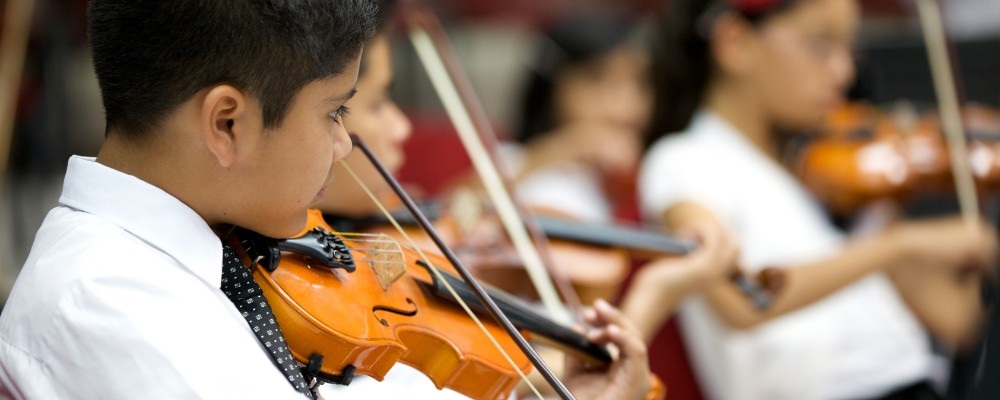
The spotlight’s glare, the hushed anticipation of the audience, the heart-pounding nervousness before the first note is played – stage fright is a familiar foe to many musicians, young and old. However, music education, particularly through structured music lessons, can be a transformative tool in conquering this fear and unlocking a world of confidence and self-expression. In this blog post, we’ll explore how the journey of learning music, whether in music education in schools or private settings, can empower individuals to overcome stage fright, find their voice, and ultimately command the stage with grace and confidence.
The Symphony of Self-Doubt: Understanding Stage Fright
Stage fright, or performance anxiety, is a common experience for musicians of all levels. It can manifest as physical symptoms like trembling hands, a racing heart, or sweaty palms, as well as mental blocks and a fear of judgment. This can be particularly daunting for children or beginners who are just starting their musical journey.
However, stage fright is not a reflection of talent or ability. It’s a natural response to the pressure of performing in front of others. The good news is that it can be overcome through practice, preparation, and the right guidance.
Music Lessons: The Conductor of Confidence
Music lessons provide a safe and supportive environment for students to develop their skills and overcome performance anxiety. Here’s how:
- Building Technical Proficiency: As students master their instrument or vocal technique, their confidence naturally grows. The ability to execute complex passages, hit the right notes, and control their instrument instills a sense of accomplishment and self-assurance.
- Practice Makes Perfect: Regular practice is key to building confidence. As students become more familiar with their repertoire, they develop muscle memory and a sense of familiarity that can help alleviate performance anxiety.
- Performance Opportunities: Music education in schools and private lessons often provide students with opportunities to perform in front of small audiences, such as recitals or informal concerts. These experiences allow students to gradually build their confidence in a supportive setting.
- Constructive Feedback: Music teachers play a crucial role in helping students overcome stage fright. They provide constructive feedback, identify areas for improvement, and offer encouragement and support. This feedback helps students understand their strengths and weaknesses, enabling them to focus on areas that need further development.
- Mindfulness and Relaxation Techniques: Many music teachers incorporate mindfulness and relaxation techniques into their lessons. Deep breathing exercises, visualization, and meditation can help students manage their anxiety and stay calm under pressure.
Teaching Music to Children: Nurturing Confidence from a Young Age
Early exposure to music education can have a profound impact on a child’s development. Teaching music to children not only introduces them to a world of creativity and expression but also helps them develop essential life skills like discipline, focus, and perseverance.
Music education in schools plays a vital role in nurturing young talent and instilling a lifelong love for music. Through group classes, ensembles, and performance opportunities, children learn to collaborate, express themselves, and overcome their fears.
The Transformation from Fear to Freedom
As students progress in their musical journey, they gradually shed their inhibitions and embrace the stage. The once-crippling stage fright transforms into excitement and anticipation. They discover the joy of sharing their music with others, communicating their emotions through melodies, and connecting with the audience on a deeper level.
The journey from stage fright to a standing ovation is a testament to the transformative power of music education. It’s a journey of self-discovery, personal growth, and the realization of one’s full potential.
Music lessons are not just about learning an instrument; they’re about building confidence, fostering self-expression, and overcoming fears. Whether you’re a child taking your first piano lesson or an adult returning to music after a long hiatus, the experience can be life-changing.
If you’re struggling with stage fright, don’t let it hold you back. Embrace the power of music education, find a supportive teacher, and embark on a journey of self-discovery and artistic expression. Remember, the stage is not just a platform for performance; it’s a canvas for you to paint your musical dreams.



